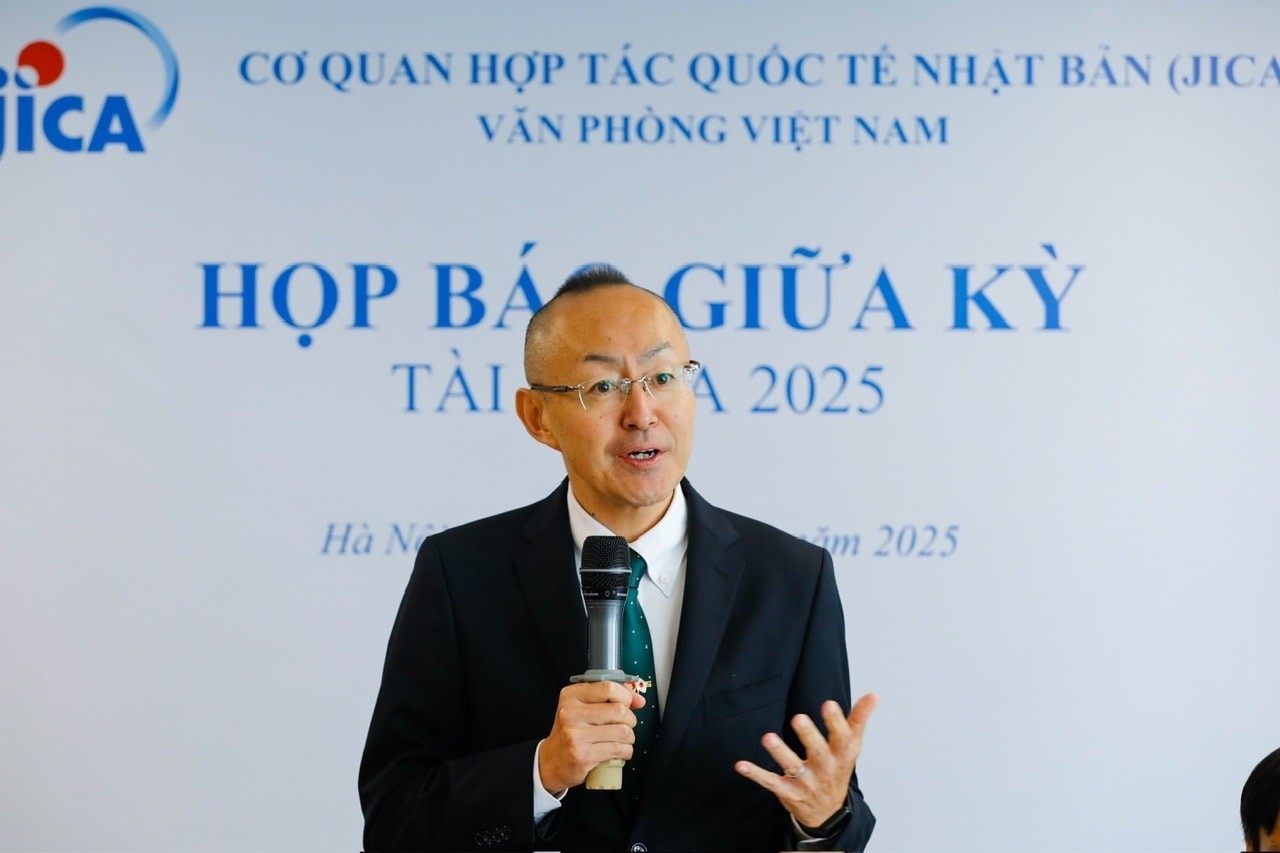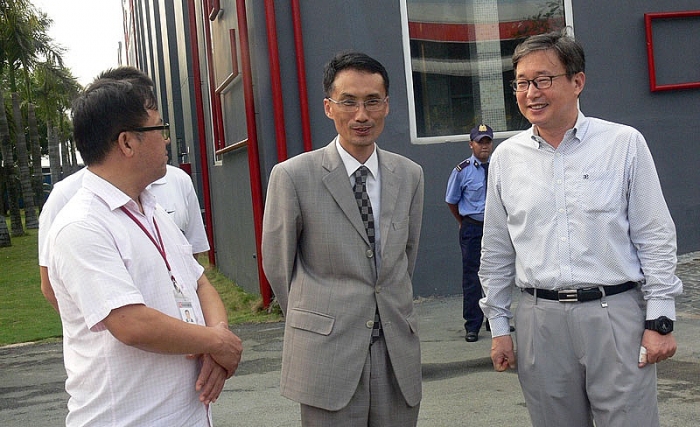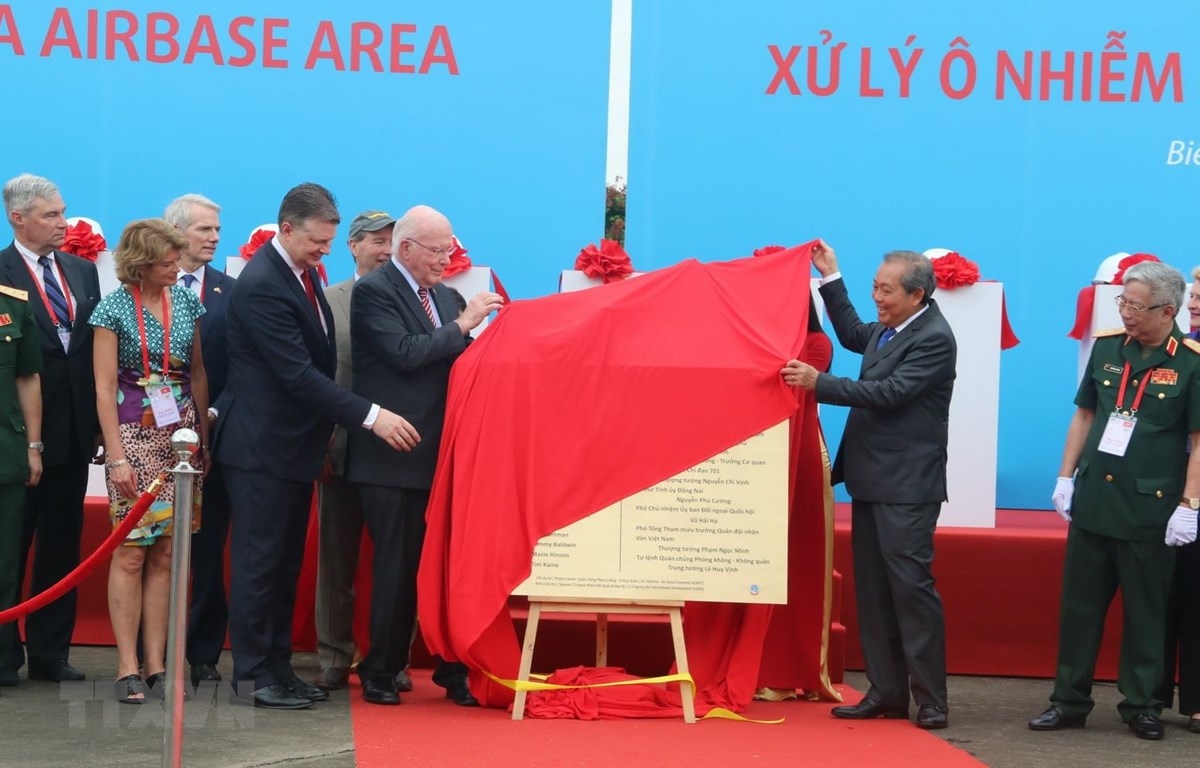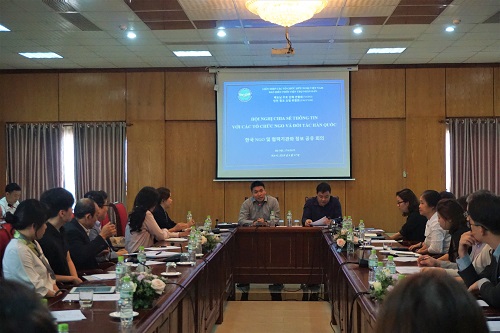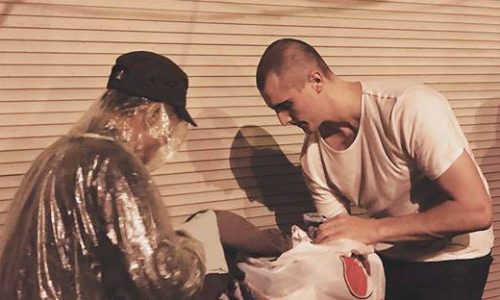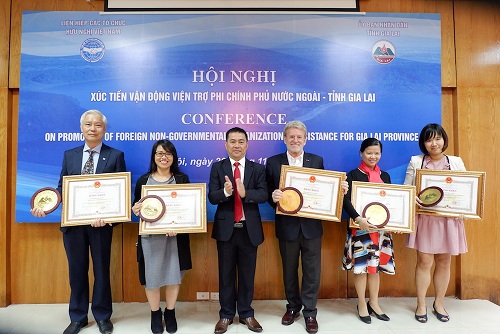"PeaceTrees Vietnam was born the help and support of Vietnamese friends," said co-founder Jerilyn Brusseau.

Life sprouted from loss and pain
In the last days of 2018, we had the opportunity to meet Jerilyn Brusseau, co-founder of PTVN at the headquarters of the Vietnam Union of Friendship Organizations (VUFO). This visit is to celebrate the 50thanniversary of her brother’s death - Daniel Cheney. Accompanying her was not only relatives and friends but also Daniel's former fiancé. In the record cold of Hanoi about 10 Celsius, she recalls the story of 50 years ago.
“In January 1969, my family was painfully received the news that my brother was killed on the Vietnam battlefield. That time was the saddest time in my life and my family. At that time, I was 25 years old and had 3 small children. At that moment, I could only think of how devastated my parents must have felt. But even at that very moment I realized my family was just one of thousands on both sides grieving an irreplaceable loss,” Jerilyn shared.
From this tragic loss, Jerilyn vowed that someday ordinary American families like her own must find a way to reach out to the Vietnamese people, to honor losses on all sides and to begin building bridges of peace and friendship.
That day finally arrived 26 years later. On July 11, 1995, President Bill Clinton announced the normalisation of diplomatic relations between Vietnam and the United States. Jerilyn and her husband, Danaan Parry, believed they must move quickly to reach the Vietnamese people to propose working together to heal the devastating consequences of the war.
When diplomacy reopened doors there, she and her husband started PeaceTrees Vietnam, a nonprofit program that removes landmines and other unexploded ordinance in Vietnam and replants the cleared land with trees.

A staff measures the giant Mark 82 bomb. Photo courtesy of PeaceTrees Vietnam.
Help from Vietnamese friends
We also sought to talk to some people and ask for their opinions, including Chuck Searcy during his return to the U.S. from Vietnam. I flew to Atlanta and asked him for advice. I said: Please help us. We do not know much about Vietnam, we do not know where to start but there is one thing I know well: We - an American family must do something to help people in Vietnam.
Jerilyn shared: In the very first days that we learned that the Vietnamese government and the American government were formalising relations in 1995, we were so thrilled…By November of 1995, we gathered a small group of friends around a Sunday breakfast table to share our vision for building peace and friendship with the people of Vietnam. They agreed to support PeaceTrees Vietnam.
A few hours after their breakfast meeting, Danaan Parry – my late husband – got on an airplane and flew all night to Washington DC from where we live in Seattle, knocked on the door of the Vietnamese delegation and said, “You don’t know me but I have an idea. A idea that we will sponsor the clearing of unexploded ordnances and work closely to Vietnamese people to begin restoring the land and working to make a better future for children and their families.”
Although he arrived at the door without an invitation, he was greeted warmly by the Vietnamese Chief of Mission, Le Van Bang, who offered support and encouragement for our idea. So that’s how we began.

Items of ERW (explosive remnants of war) are safely disposed by PTVN’s team EOD1 at central demolition site, Trieu Son commune, Trieu Phong district, Quang Tri province. Photo courtesy of PeaceTrees Vietnam.
In early January 1996, Danaan and Jerilyn traveled to Vietnam and met with VUFO’s representatives Vu Xuan Hong.
Welcoming us at VUFO headquarters with a friendly smile, Hong said, “Come here, we have been waiting for your Americans for a long time. This is the time to close the past, towards the future.”
Hong also directed, suggested to me about the field of clearance in Quang Tri province and brought volunteers to Vietnam to understand the consequences of the war, planting trees on the war-torn land, thereby enhancing understanding and building friendship between the two peoples.
But then, in November 1996, my husband suffered a sudden heart attack and passed away just before PTVN's project started. I knew then that I had to continue the work that both of us started.

Each year PTVN hosts Mine Risk Education Camps where hundreds of children learn how to remain safe from the dangers of unexploded ordnance. Photo courtesy of PeaceTrees Vietnam.
Humanitarian Mine Action is the core of PTVN’s work. Their six Explosive Ordnance Disposal teams work each day to clear landmines and other UXO, that have been leftover from the war, from the land in Quang Tri.
PTVN’s goal with this work is to respond to the harmful social and economic effects generated by landmines and other unexploded ordnance, and to advance peace and security by promoting general stability through the use of mine action.
This work is especially important in Quang Tri because the orovince was once dissected by the DMZ, making it a province that continues to be heavily impacted by the legacy of war. In Quang Tri, which is slightly larger than the state of Rhode Island, a startling 1.6 times more explosive weapons were dropped than in all of Europe during World War II.
Today, more than 40 years after the end of the war, 74 per cent of the land in Quang Tri province remains riddled with land mines, bombs, grenades, and other unexploded ordnance. Since 1975, at least 105,023 landmine and UXO casualties have been reported in Vietnam.
Since its founding, Peacetrees has had a major impact in Quang Tri province includes:
110,600 ordnance items removed
43,850 trees planted
805 participants on citizen diplomacy trips over the past 20 years
Mine risk education provided for 99,425 people, 1,905 scholarships distributed
100 family homes, 12 libraries, 15 kindergartens and 2 community centers
215 victims and 62 families affected by accidents supported
1,257 acres of land cleared
VNF

